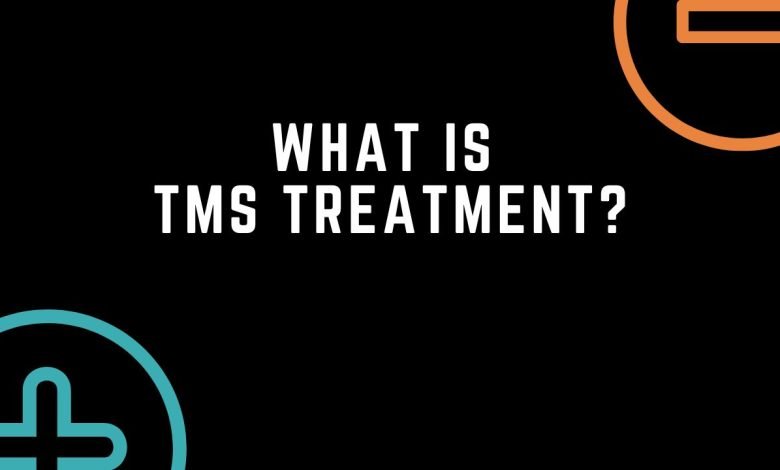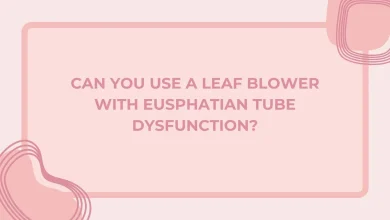What is TMS Treatment?

TMS, or Transcranial Magnetic Stimulation, is a non-invasive procedure that uses magnetic fields to stimulate nerve cells in the brain. It’s primarily used to treat depression, especially when other treatments, like medication or therapy, haven’t been effective.
The treatment involves placing a magnetic coil near the patient’s head, where it generates electric currents that stimulate brain cells. This method has gained popularity due to its effectiveness and minimal side effects. TMS treatment APN has become an essential option for many people seeking alternative methods to manage their mental health conditions.
How Does TMS Treatment Work?
TMS treatment works by targeting specific areas of the brain that are associated with mood regulation. The magnetic pulses generated by the coil can either increase or decrease brain activity in these areas. During the treatment, patients typically sit in a chair while the coil is placed against their scalp.
The procedure is painless and usually lasts about 30 to 40 minutes. Most patients require multiple sessions over several weeks to see significant results. TMS treatment APN has proven to be a safe and effective option for those who haven’t found relief through traditional methods.
Who Can Benefit from TMS Treatment?
TMS treatment is most commonly used for individuals who suffer from major depressive disorder (MDD) and haven’t responded well to other treatments. It’s also being explored for other conditions such as anxiety, PTSD, and OCD.
People who are unable to tolerate the side effects of antidepressant medications may find TMS treatment APN particularly beneficial. While it’s not a cure-all, it provides a new avenue for those who have exhausted other options, offering hope to individuals who have struggled with long-term mental health issues.
What Are the Side Effects of TMS Treatment?
While TMS treatment is generally well-tolerated, it does have some potential side effects. The most common side effect is mild discomfort or headache during or after the procedure. Some patients may also experience lightheadedness, tingling, or scalp discomfort at the treatment site.
These side effects are usually temporary and subside shortly after the session. In rare cases, more serious side effects like seizures have been reported, though this is extremely uncommon. Overall, TMS treatment APN is considered a low-risk procedure, especially when compared to the side effects associated with medications.
How Effective is TMS Treatment?
The effectiveness of TMS treatment varies from person to person, but studies have shown that it can be highly effective for individuals with treatment-resistant depression. About 50-60% of patients experience significant improvement in their symptoms, and about a third achieve full remission.
The benefits of TMS treatment APN often continue long after the treatment sessions have ended. Some patients may require maintenance sessions to keep their symptoms at bay, but many find that TMS provides lasting relief, making it a viable long-term option.
What is the Cost of TMS Treatment?
The cost of TMS treatment can vary depending on the provider, location, and the number of sessions required. On average, a full course of TMS treatment can range from $6,000 to $12,000. While this may seem expensive, many insurance companies now cover TMS treatment APN, recognizing its effectiveness for treatment-resistant depression.
Patients should check with their insurance providers to understand their coverage options. For those without insurance, some clinics offer payment plans or sliding scale fees to make the treatment more accessible.
How Does TMS Treatment Compare to Other Treatments?
TMS treatment differs from other treatments like medication and therapy in several ways. Unlike medication, which affects the entire body, TMS specifically targets the brain areas associated with mood regulation. This targeted approach results in fewer side effects, making it a preferred option for those who cannot tolerate medication.
Compared to therapy, TMS treatment APN provides a more direct intervention, which can be particularly beneficial for individuals with severe symptoms. While it may not replace medication or therapy for everyone, it serves as an important alternative for those who haven’t found relief through traditional methods.
What Should You Expect During TMS Treatment?
During TMS treatment, patients can expect to sit comfortably in a chair while the magnetic coil is positioned against their scalp. The technician will then activate the coil, which produces a tapping or clicking sound. Patients may feel a slight tapping sensation on their head, but the procedure is not painful.
Each session typically lasts between 30 to 40 minutes, and patients are usually able to return to their normal activities immediately afterward. Over the course of several weeks, TMS treatment APN can lead to noticeable improvements in mood and overall mental health.
What Are the Long-Term Outcomes of TMS Treatment?
The long-term outcomes of TMS treatment can be very positive for many patients. Studies have shown that the benefits of TMS can last for several months or even years after the initial treatment course. Some patients may require booster sessions to maintain their results, especially if their symptoms begin to return. TMS treatment APN offers a promising long-term solution for those with treatment-resistant depression, providing a new option for managing mental health conditions over time.
Pros and Cons of TMS Treatment
| Pros | Cons |
|---|---|
| Non-invasive and painless | Can be expensive without insurance |
| Minimal side effects | Requires multiple sessions |
| Effective for treatment-resistant cases | Not suitable for everyone |
| No need for anesthesia | Mild discomfort during sessions |
| Can be done on an outpatient basis | Rare risk of seizures |
Conclusion
TMS treatment is an innovative approach to managing mental health conditions, particularly for those who haven’t found relief through other methods. With its ability to target specific brain areas and its low risk of side effects, TMS treatment APN offers a valuable alternative for individuals struggling with depression, anxiety, and other conditions.
While it may require a significant financial investment, the potential benefits, including long-lasting relief, make it a worthwhile consideration for many. As more research is conducted and the treatment becomes more widely available, TMS is likely to play an increasingly important role in the future of mental health care.




